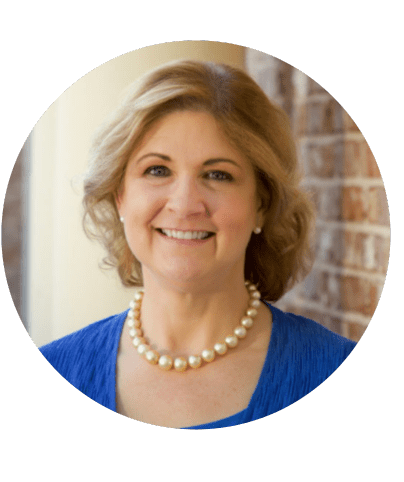Someone’s Gotta Say It
Get Ready: 2025 Will Be Big, and We Need You

By Marina Sampanes Peed
Executive Director of Mosaic Georgia

As the holiday season unfolds and 2024 comes to a close, I’m reflecting on the progress we’ve made and looking ahead to what’s next. Let me tell you—2025 is shaping up to be a big year. While the future holds uncertainties, one thing is clear: we are steady and sure-footed in our mission. Together, we have ambitious goals and exciting opportunities to create a safer, more compassionate community for everyone. And we can’t do it without you.
Big Work Ahead
Our vision for 2025 isn’t just about continuing what we’ve done; it’s about growing, evolving, and finding innovative ways to address the complex and deeply rooted issues of violence against children and women.
While our 24/7 response to sexual assault, abuse, and trafficking will remain at the core of what we do, we’re launching new initiatives focused on prevention. This means starting critical conversations that foster awareness, respect, and enthusiastic consent—long before harm occurs. Many people want to address these issues but don’t know how to begin. That’s where we come in; we’ll help you start and sustain these conversations in ways that resonate and inspire action.
This bold and essential work also includes strengthening community partnerships and breaking down barriers that prevent children, teens, and adults from speaking up and seeking support. Change isn’t easy, but it’s possible—and necessary.
A Big Move: Next spring, Mosaic Georgia’s team will come together under one roof in a larger facility in Lawrenceville. Thanks to an incredible partnership with Northside Hospitals, our new center will include additional exam rooms, interview spaces, and private areas for clients and their loved ones. Our expanded space will also enhance our resilience services, offering improved access to legal advocacy, mental health & wellness resources, and prevention education programs.
Everyone Can Contribute
Creating safer homes and communities requires a collective effort. There are so many ways to be part of this mission. You can volunteer your time to support survivors, advocate for policies that uplift and protect women, children, and vulnerable populations, or donate to sustain the services that make a real difference.
Every contribution matters, from supplies for client care packages to monthly donations or major gifts. No act of generosity is too small—all of it adds up to meaningful change.
Together, We’re Stronger
I firmly believe that the goodness of people will prevail. Sometimes, a kind word or a small act of encouragement is all it takes to make someone’s day—or their future. These ripples of kindness aren’t just powerful; they bring light into a world that can often feel dark.
When people like you stand with us, you send a powerful message: that our community values safety, respect, and justice for all. We’ve seen what’s possible when we work together, and we know that 2025 will be no different.
As we prepare to step into the new year, I invite you to join us in this big work. Let’s move forward together, one step at a time, with courage and compassion. Together, we can create a community where everyone feels safe, valued, and supported.
Here’s to 2025 and the transformative work we’ll do together. Thank you for being part of the Mosaic Georgia team.
Wishing you peace, joy, and determination in the year ahead.












 One of the often-overlooked responses following a trauma like child sexual abuse or sexual assault is the pervasive grief. For many survivors of sexual violence, their life looks different after an outcry or disclosure of their experiences. It is vital in our care for survivors and their families, that we make room for grief and provide a safe space where the losses are acknowledged.
One of the often-overlooked responses following a trauma like child sexual abuse or sexual assault is the pervasive grief. For many survivors of sexual violence, their life looks different after an outcry or disclosure of their experiences. It is vital in our care for survivors and their families, that we make room for grief and provide a safe space where the losses are acknowledged.


